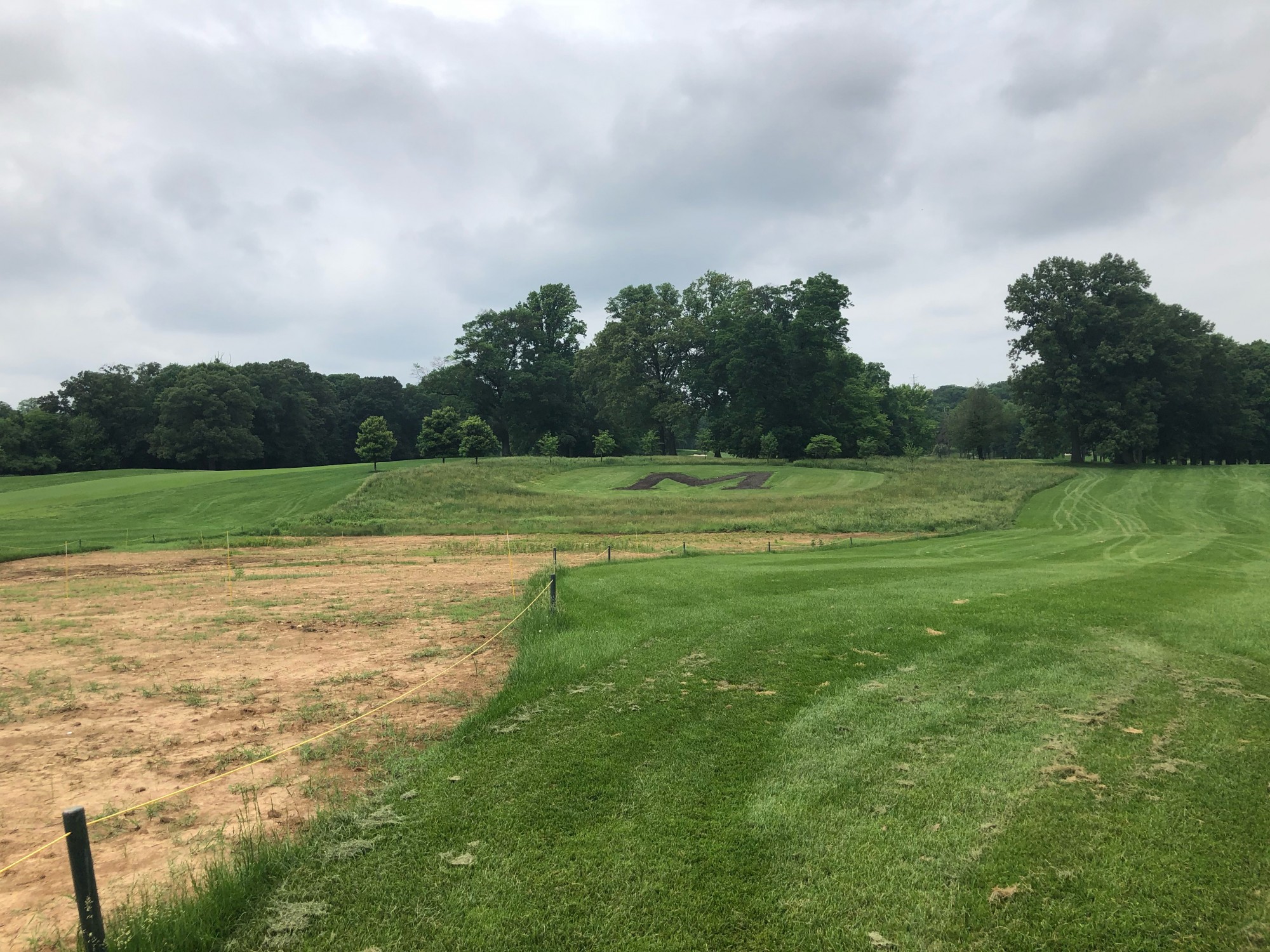The University of Maryland Golf Course has joined a national program called Monarchs in the Rough, which provides milkweed seeds to about 250 courses across North America, to help save the declining monarch butterfly population.
In May, just under an acre of land between the golf course’s first and 18th holes was cleared and milkweed seeds were planted. Milkweed is crucial for monarchs, whose population has declined about 90 percent over the last 20 years, according to the National Wildlife Federation, as the butterflies will only lay their eggs on milkweed plants, whereas their caterpillars exclusively eat milkweed.
“Monarchs do have to find you,” said Audubon International CEO Christine Kane. “It’s a little bit of a ‘build and they will come’ kind of scenario.”
[Read more: “Not just a chore”: UMD students develop app to incentivize recycling]
Audubon International — an environmental education nonprofit — teamed up with the Environmental Defense Fund to create Monarchs in the Rough. The organization provided the milkweed seeds to this university’s golf course free of charge.
There are an estimated 1.5 million total acres of green space on golf courses across the nation, according to Golf Course Superintendents of America, and as about 30 percent of golf course land isn’t used to play the game, golf courses are ideal places to plant butterfly habitats, Kane said.
The project at this university took about 150 hours and was more difficult than expected due to the size of the planned habitat, said Andrew Janosek, the golf course assistant superintendent.
“We have a small crew to begin with, and [Monarchs in the Rough is] just a side project,” Janosek said. “It was backbreaking at times, but I think it will be worth it and I’m pretty happy with how it turned out.”
[Read more: Honeybees are dying. In three minutes, a UMD student can tell you why.]
The decline of the monarch population is due to multiple factors. This includes an increase in the use of pesticides, changes in agricultural planting patterns, drought and urban sprawl, which have contributed to the loss of milkweed, Kane said. Now that the milkweed is planted, it could still take several years to create the ecosystem necessary for the monarchs to migrate back to the area, she said.
This university’s golf course has 177 acres of green space which is ideal for the sustainability project, said golf course superintendent Brendan Rapp.
“Being at a golf course, we have an opportunity to do a lot more than other people can do, with everything else that’s being built up and all the green space that’s been lost,” Rapp said.
In addition to milkweed, a mix of tall grasses and seeds for wildflowers such as partridge pea and Maryland senna were also planted to add color and make the habitat more visually appealing, said Sam Bahr, a horticulturist at this university’s Arboretum and Botanical Garden, who oversaw the planning of the milkweed habitat.
“Unfortunately, milkweed is not the prettiest looking plant,” Bahr said, adding in addition to beautifying the land, the mix of flowers, grass and milkweed could attract other species of butterflies, moths and pollinators such as honey bees.
Last year, the golf course made an effort to attract other pollinators by building rain gardens. There are plans to plant more milkweed and flowers along the golf course entrance in the future, Rapp said.
Janosek said he took this project seriously because golf courses get a bad reputation for hurting wildlife, by using too many pesticides and fertilizers.
“Golf courses get a bad rap. People immediately think pesticides and chemicals and fertilizer. Really that’s the opposite of what we’re about,” Janosek said. “If we have the opportunity to do something that’s going to look good and save some animals … and be more sustainable in any way shape or form, we’re going to do it.”
CORRECTION: Due to a reporting error, a previous version of this story stated that Audubon International created Monarchs in the Rough. The project is a joint effort between Audubon and the Environmental Defense Fund. This article has been updated.



